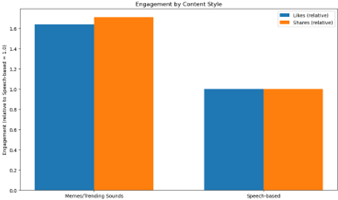Algorithmic Amplification and Youth Political Engagement on TikTok: A Study of Political Discourse, Engagement, and Gendered Interactions in Pakistan
Keywords:
TikTok, Algorithmic Politics, Political Discourse, Digital Youth, Engagement Dynamics, Gendered Participation, Meme CultureAbstract
This study investigates how TikTok's algorithmic design shapes political discourse, engagement dynamics, and gendered participation in Pakistan’s digital youth sphere. Using a mixed-methods approach, we analyzed 500 politically relevant TikTok videos collected between April 1 and May 15, 2025, based on hashtags like #PakistanPolitics, #ImranKhan, and #Election2024. The content was coded for thematic type, tone, engagement metrics, and rhetorical style. Leader-centered content accounted for 42% of the sample, while 38% was issue-based, and 13% focused on electoral mobilization. Meme-based or trending-sound formats received 64% more likes and 71% more shares than traditional commentary. Videos referencing Imran Khan and PTI attracted significantly more engagement than those related to PML-N or PPP. Female creators, though underrepresented (32%), garnered higher average comments per video; however, a notable portion of these comments contained gendered stereotypes. The findings underscore how TikTok’s algorithm amplifies certain political narratives and engagement patterns, reinforcing digital echo chambers and gendered discourse. This study contributes to growing literature on algorithmic politics in Global South contexts and offers policy-level insights for ensuring equitable and transparent digital participation.








